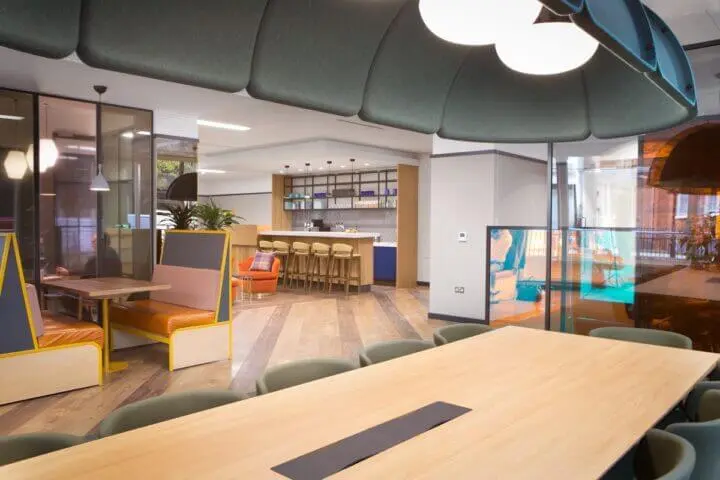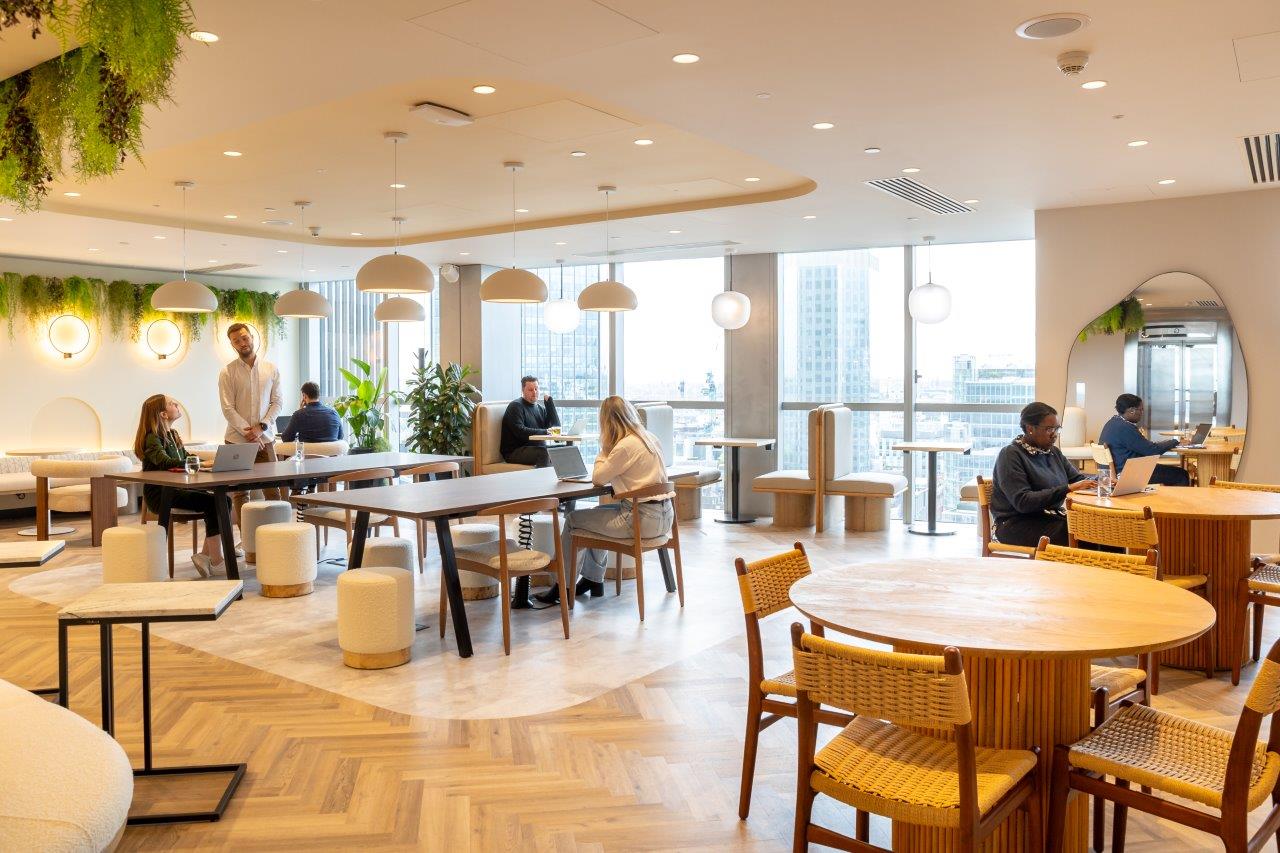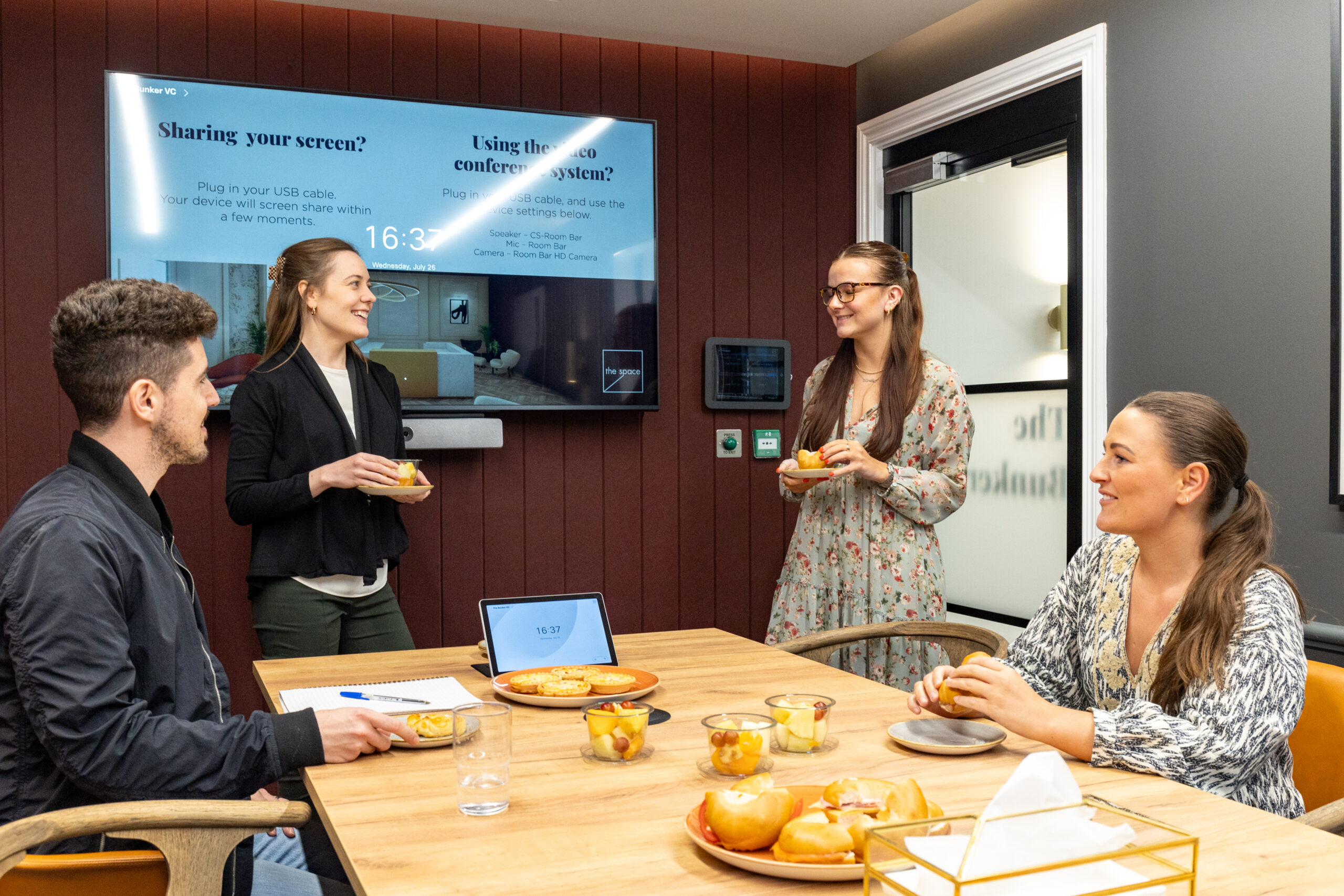Coworking Space vs Traditional Office: Which is right for your business?
8th November 2019

There is no denying the rising popularity of flexible working spaces. Sitting at an office desk from 9 to 5 is no longer the default, with many businesses opting for policies that give employees more freedom. According to research by All Work, there are approximately 35,000 flexible workspaces around the world. London alone is expected to have 3 million square feet of flexible space by 2020.
Coworking offices, where several businesses, workers, and freelancers operate in a shared space, are often a more cost-effective solution to paying rent or mortgages on single office spaces. These coworking spaces offer a range of working environments for customers ranging from quiet concentration zones to more relaxed lounges with free coffee and amenities. Traditional office spaces cater solely for the business that has leased or licensed it, providing a greater level of privacy and control than shared spaces. Employees generally have their own dedicated desk space and equipment rather than having to find a space to hot desk.
For both new and established businesses, it can be a difficult decision as to which set up is most suitable for your employees and brand. To help with this decision, we’ve outlined the most crucial factors you need to consider, as well as highlighting which office type provides the best solution for each criterion:
Productivity
As the saying goes, you should strive to work smarter, not harder, but this relies on staying motivated and productive throughout the day. Coworking spaces are typically less formal and restrictive, with plenty of areas to wind down and take a break. These layouts can help to relieve any pressure on employees by providing spaces to take their mind off work for a short while, before coming back to the task at hand with a fresh mindset.
That said, shared spaces can be unpredictable in terms of how other companies utilising the space are operating on a given day. Just because your business has deadlines doesn’t mean another business does, which can lead to unwelcome distractions. Those that have difficulty staying focused may find a co-working space less productive than a private office.
The Winner: Traditional Office
Creativity
The environment where work takes place has a fundamental impact on the quality of work produced. If all employees can see when they look around an office is grey cubicle walls, they will not be creative. Similarly, clutter can limit the brain’s ability to process information, stifling any creative spark.
Coworking environments are designed to inspire, with high ceilings, open-plan layouts, and different zones dedicated to different types of work. Employees can move between different zones, bringing some variation into their work environment and new sources of inspiration. Another creative perk of coworking is that it connects you with people who have different skillsets and may approach challenges differently. The opportunity to share ideas and pick brains from someone new can help to generate fresh ideas.
Traditional offices, however, make it much easier for company-wide collaboration. Discussing a project with different departments is easier as you’re all working within the same office space, as opposed to scattered around different coworking zones. On the other hand, it’s more difficult to enjoy a change of scenery in a traditional office, which can lead to employees falling into a trap of mundanity that generates stale and tired ideas.
The Winner: Coworking Space
Networking
Everyone knows the importance of networking for businesses. For many entrepreneurs, networking is a key driver of new business through collaboration with other brands, while others value it for the potential to gain new insights and advice from more experienced and established names. However, in order to meet new people, you need to get out there and introduce yourself.
Coworking spaces provide networking opportunities on a daily basis, by virtue of the fact you will be working alongside different businesses in a shared office. You’re able to ignite conversation with ease, connecting with like-minded professionals to share ideas or overcome challenges. In a traditional office space, the only people you will come across on a day-to-day basis are employees within the same organisation, meaning a business will actually have to seek networking opportunities outside of the normal workday.
The Winner: Coworking Space
Relationships
In traditional offices, employees will typically spend the whole working day together—depending on whether they’re on shifts or not. This allows the formation of strong workplace relationships, making collaboration more fruitful. These strong relationships can be beneficial to your employees, boosting morale and generally making the workplace a more pleasant place to be. However, if certain colleagues do not get on, problems can arise and HR may need to get involved.
In a more relaxed coworking environment, you may not see the same people every day. The option of working wherever you choose means there is no danger of having to work around people you don’t get along with. However, by not having a set group of people around you, may find the workday feels lonely, something more than half of Brits already admit to suffering from.
The Winner: Traditional Office
Control
Having your own workspace gives you complete control over the design and layout, allowing you to pick a style that best reflects your business and brand values. For example, you may want an open plan environment as opposed to separate offices or cubicles. If you’ll be welcoming potential clients into your office, you’ll likely want memorable branding around your office, whether through posters or a colour scheme. There is also the added bonus of privacy by having your own personal desk.
In a coworking space, you get very limited say on decoration and layout. You can’t swap and change things simply based on your own preferences as there will be many other businesses and employees to consider. The wide choice of work zones does negate the need for this level of control, but there is limited scope in terms of branding and personalisation.
The Winner: Traditional Office
Atmosphere
The layout of coworking spaces means the atmosphere and vibe is generally much more relaxed than in a traditional office. This helps to reduce pressure on employees, alleviating stress levels and boosting overall performance. There have been many studies warning against the effects of stress in the workplace, including fatigue, lack of focus, social withdrawal, and even anxiety and depression.
However, you also run the risk of working in a space that’s a little too comfortable. Working in a coworking space means you have to rely on the self-control and discipline of employees. More introverted employees may also be uncomfortable with having constantly-changing neighbours.
In a traditional office, business owners and office managers are responsible for ensuring office space is as comfortable as possible for your employees. This means creating and maintaining the right atmosphere that also reflects your brand ideals. However, a change of scenery is not always as readily available for employees as in a coworking space, which can lead to problems with employee motivation and drive.
The Winner: Coworking Space
While there are pros and cons for both coworking spaces and traditional offices, ultimately, it depends on your own business needs. If you have a smaller company, with a limited amount of staff, you would do well to minimise costs with a club space membership in a coworking space, as this is often much cheaper than the cost of renting your own office. The networking and collaboration opportunities could also provide a springboard to success for your enterprise. However, if you have a larger business, a traditional private office can still offer a wide range of benefits, particularly in terms of striking a good balance between productivity and morale.
For help deciding which type of office space is right for your business, contact Landmark today. Our team will be more than happy to help evaluate your requirements, guaranteeing a solution that is best suited for your team.

